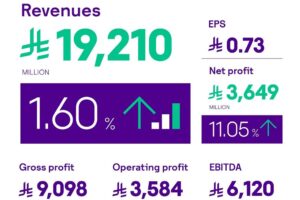By: Rohit Maheshwari, head of strategy and product, Subex
To broaden market reach and increase subscriber acquisitions, telecom operators are actively moving from traditional direct sales methods to online platforms, retailers, and third-party affiliates. Dealer networks, ranging from point-of-sale shops to external sales representatives, play a critical role in this changing ecosystem – not only in selling products but also in bridging the gap between brands and customers.
While sales diversification allows operators to capture a wider market segment and cater to today’s digitally savvy customer base, it is not without obstacles. First, the broadening of sales channels introduces complexities in managing various promotional activities and commission structures across different platforms. Second, subscriber acquisition costs (SAC) are multi-dimensional, encompassing both direct and indirect expenditures. Direct costs typically involve investments in company owned stores, franchisees, and direct sales forces, whereas indirect costs comprise activities such as marketing and sales promotions. Balancing these costs, while ensuring quality service and broad market appeal requires strategic insight and operational efficiency. To sustain these networks, operators are focused on onboarding reliable compensation programmes, while simultaneously seeking advanced tools to prevent revenue loss due to calculation errors and weak contract management.
The criticality of commission assurance
Critical in mitigating the root causes of revenue leakage such as overpayment of partner commissions, incorrect settlement of third-party services, failure to provide correct services to partners, etc., commission assurance stands out as a necessity for operators expanding their sales channels. When commission assurance is absent from the mix, service providers risk a myriad of obstacles such as:
- Incomplete and inaccurate data across services, which hinders their ability to obtain a holistic view.
- Complexities in calculations and subsequent validation of commissions and incentive payouts.
- Sporadic or the absence of assurance reviews for partner invoice validation.
- Dealer sales fraud, resulting from the withdrawal of commissions and incentives.
- Absence of partner insights on customer reach, risk, consistency, and feedback.
Given the intricacies of sales and promotions, commission assurance validation (CAV), which involves processes and measures to ensure the accuracy and reliability of commission payments, not only prevents commission overpayments, underpayments, and inconsistencies, but ensures compliance with industry regulations and governance standards. Highlighting its significance, the Communications Fraud Control Association’s (CFCA) 2023 report points to annual losses of approximately $1.2 billion due to dealer and commission fraud within the telecom industry, making a robust CAV system vital for maintaining transparency, trust, and financial integrity.
To lessen financial losses, telecom operators are increasingly seeking industry-specific solutions to manage their complex commissions structures and accurately validate payouts. Further, the solution needs the flexibility and adaptability to quickly adjust to the market’s dynamic nature, as well as seamlessly integrate with the operator’s existing infrastructures. Key to selecting a robust commission assurance solution is in its ability to:
- Ensure data completeness and accurate data tracking, as well as collect data across a variety of sources such as Kafka, PDF, etc.
- Provide dealer assurance by ensuring dealer commission, calculation validation, and dealer performance tracking.
- Track new sales revenue by dealer.
- Enable partner fraud risk monitoring, risk profiling, and risk tracking.
- Authenticate partner invoices.
- Provide revenue booking validation, cost booking validation, and feature tracking adjustments.
Partnership and commission assurance play key roles within the business assurance forum. The reconciliation performed by commission assurance is obtained from sources, including ICT trunk dump, network trunk dump, ICT business agreement dump, IMSI dump, VAS subscription, VAS invoice, third-party subscriptions, and more.
Given the intricacies of commission assurance, data analytics have become indispensable in managing Subscriber Acquisition Cost. By leveraging data, it enables telecom operators to gain insights into customer preferences and trends, facilitating more targeted and effective marketing strategies. This approach has been proven to reduce extraneous expenses and enhance the efficacy of marketing initiatives, leading to improved return on investment (ROI).
Leveraging technology to improve commission assurance doesn’t end with data analytics. Advanced technologies, specifically artificial intelligence (AI) and machine learning (ML) are playing a pivotal role in revolutionising commission assurance.
Using technology to identify anomalies and improve fraud detection
Technologies such as AI and ML provide the sophisticated analysis capabilities needed for commission structures, sales trends, anomaly identification, and potential fraud. If we focus on anomaly detection, conventional methods that are based on a reactive approach of responding to alarms triggered by static thresholds fail to suffice the needs of today’s communication providers. Telcos require a solution that can automatically scan billions of records, identify unusual patterns, intelligently correlate these patterns with their context of occurrence, and flag outliers that can cause business impact… and all this needs to happen in real time.
The massive amounts of data operators possess makes it difficult to detect anomalies, which usually means that the anomalies remain undetected. Essentially, they become unknown problems with unknown solutions. Big data challenges include:
- Large volumes of data often create business blind spots, hindering the telco’s ability to identify and act on hidden trends.
- Ramifications from inaccurate forecasts, which can result in sizeable losses – both monetary and otherwise.
- Traditional alerting mechanisms don’t kick-in until a threshold is reached, increasing its impact.
- The inability to derive relevant and timely insights from the data collected, which can result in opportunities.
AI-based anomaly detection enables telcos to mitigate risks and take action before impacts occur by providing:
- Error-free handling of large and complex data sets, real-time detection of hidden trends, and timely alerts.
- Self-learning algorithms, which increases the number of identifiable patterns for more accurate and consistent outputs.
- Flexible channels that allow output to be sent to existing workflow management, ticketing, or fraud detection systems.
- Seamless integration with existing systems such as a data warehouse or business intelligence (BI) system.
Emerging technologies such as 5G, the Internet of Things (IoT), and cloud computing continue to redefine the telecom landscape, offering new opportunities for growth and innovation. As these technologies gain prominence, telecom operators will need to continuously adapt their subscriber acquisition and commission management strategies. However, these opportunities also bring challenges, especially in subscriber acquisition and commission management. Navigating the growing complexities requires a robust approach to commission assurance. By ensuring accurate and reliable commission processes, telcos will not only protect against financial losses but forge stronger, more transparent relationships with their partners and stakeholders. Telcos that take a strategic approach to commission assurance will foster a sustainable and profitable business model in what has become a highly competitive and rapidly evolving industry.












